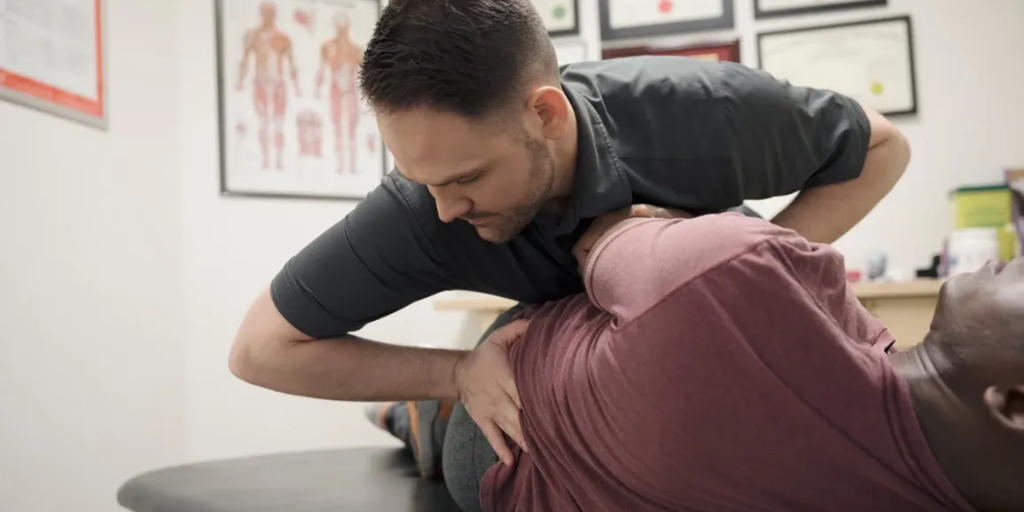
The Role Of Chiropractic Care In Post-Surgical Recovery
Recovering from surgery is never easy. Whether it’s a spinal operation, joint replacement, or soft tissue repair, your body undergoes significant trauma during the procedure. After the operation, the healing process can be long, painful, and complicated. Many patients face stiffness, reduced mobility, inflammation, and even new areas of discomfort as their body tries to adapt and heal.
Surgical recovery isn’t only about the incision site. It involves your entire musculoskeletal system adjusting to changes that surgery may have triggered. Scar tissue can form, muscles can weaken from inactivity, and alignment issues can emerge during the healing phase. These challenges can delay recovery and affect long-term outcomes.
Traditional post-operative care usually includes medications, physical therapy, and follow-up appointments. However, one increasingly recognized complementary therapy that plays a powerful role in healing is chiropractic care.
What Is Chiropractic Care?

Chiropractic care focuses on the relationship between the spine and the nervous system, using hands-on techniques to improve function, reduce pain, and promote holistic wellness. Chiropractors use spinal adjustments and other manual therapies to restore alignment and improve communication between the brain and body.
While chiropractic care is often associated with treating back and neck pain, its scope extends much further. It’s a science-backed practice that helps with inflammation, mobility, nerve health, and muscular recovery all of which are vital after surgery.
How Chiropractic Supports Post-Surgical Healing

One of the biggest benefits of chiropractic care in post-surgical recovery is pain management. After surgery, patients often rely on pain medications that may carry the risk of dependency or side effects. Chiropractic techniques can offer natural pain relief by reducing pressure on nerves and alleviating muscle tension.
By restoring spinal and joint alignment, chiropractors can also enhance blood flow to affected areas. Improved circulation supports tissue healing and helps flush out inflammation. When the nervous system is functioning optimally, the body’s natural healing mechanisms become more efficient.
Stiffness is a common issue during post-op recovery. Chiropractic adjustments can improve range of motion and flexibility without putting stress on the surgical site. Gentle manipulations and soft tissue therapies help reduce restrictions, allowing patients to move more comfortably and with less fear of reinjury.
Promoting Faster and More Complete Recovery
Chiropractic care contributes to a faster recovery timeline by addressing the secondary complications that often come with surgery. Muscle compensation, poor posture, and nerve compression are common issues that slow healing and increase discomfort.
By working with a skilled chiropractor, patients can correct these imbalances early. This reduces strain on the healing tissues and prevents the body from developing bad movement patterns. Instead of just recovering to a basic level of function, chiropractic helps patients return to full, pain-free activity.
In addition, chiropractic sessions can stimulate the release of endorphins your body’s natural painkillers. This can reduce reliance on opioids and make the recovery process more pleasant. As you move through the post-op phases, chiropractic support can be adapted to match your body’s healing needs.
Addressing Scar Tissue and Muscular Imbalance
Scar tissue is a natural part of the healing process, but excessive buildup can cause pain and restrict movement. Chiropractic techniques such as myofascial release, instrument-assisted soft tissue mobilization, and gentle manipulation can help break down adhesions and promote proper tissue remodeling.
After surgery, some muscles become overactive while others weaken due to disuse or altered biomechanics. Chiropractors can assess muscular imbalances and use targeted therapies to restore balance. This is essential for preventing long-term complications and improving your body’s overall performance.
Proper joint mobility is also crucial. Even if the surgery was not on a joint itself, surrounding structures can become stiff from lack of use. Chiropractic adjustments maintain joint health and prevent secondary issues like arthritis or chronic inflammation.
Reducing Inflammation and Enhancing Nerve Function
Inflammation is a natural immune response, but prolonged or excessive inflammation after surgery can slow healing and create chronic pain. Chiropractic care helps regulate this response by reducing mechanical stress on the body and improving lymphatic drainage.
The nervous system plays a central role in healing, and the spine is the communication hub for this system. Misalignments or restrictions in the spine can disrupt nerve signals, delaying healing and causing dysfunction. Chiropractic adjustments restore nerve flow, which helps your organs, tissues, and immune system perform at their best.
This improved nerve function can be especially helpful for patients recovering from spinal or orthopedic surgeries. With proper alignment, the body’s electrical communication system can work without interruption, promoting faster regeneration and less discomfort.
Safe Integration with Medical Care
A common concern among patients is whether chiropractic care is safe after surgery. When provided by a licensed chiropractor with experience in post-surgical recovery, it is not only safe but highly beneficial. Chiropractors work collaboratively with surgeons and primary care physicians to ensure their treatments are appropriate and well-timed.
In many cases, chiropractic care begins weeks after surgery once the initial healing phase is complete. Chiropractors tailor their approach to avoid stress on surgical sites and use gentle, targeted techniques based on your current condition.
It’s important to communicate clearly with your healthcare team and chiropractor about the type of surgery you had, your recovery progress, and any complications. With this information, a safe and customized treatment plan can be developed to support your recovery without interfering with other treatments.
Improving Quality of Life During Recovery
Recovery isn’t just about healing tissue it’s also about restoring quality of life. Pain, limited mobility, and emotional stress can make the post-operative phase frustrating and isolating. Chiropractic care addresses both the physical and psychological aspects of recovery.
When pain is reduced and movement improves, patients feel more in control. They regain independence and confidence, which supports emotional well-being. Chiropractic care also improves sleep by reducing discomfort and relaxing the body. Better sleep enhances the healing process and boosts mental clarity.
Even small improvements can make a huge difference. Being able to walk without pain, perform daily tasks with ease, or sleep through the night are milestones that patients often reach sooner with chiropractic support. These improvements contribute to a smoother and more fulfilling recovery journey.
Long-Term Benefits Beyond Recovery
Chiropractic care doesn’t stop being useful once you’ve recovered from surgery. In fact, it lays the foundation for long-term wellness. Many post-surgical patients continue with periodic chiropractic visits to maintain their alignment, prevent reinjury, and stay active.
By addressing underlying biomechanical issues, chiropractic care can prevent future surgeries or complications. It keeps the musculoskeletal system functioning at a high level, allowing you to enjoy better mobility, strength, and overall vitality.
Whether you’re returning to sports, work, or simply your normal routine, chiropractic care helps you perform your best. It supports longevity and enhances your quality of life, turning recovery into an opportunity for transformation.
Holistic Support for the Entire Body

Surgery may target a specific part of the body, but its effects ripple throughout. Chiropractic care takes a holistic view of healing, recognizing that your spine, muscles, nerves, and joints all work together. When one part is out of sync, it affects the whole.
This holistic approach is what makes chiropractic care so effective during post-surgical recovery. Instead of only focusing on symptoms, it addresses the root causes of discomfort and dysfunction. It supports your body’s natural healing intelligence, working with it rather than against it.
Patients who include chiropractic in their recovery often feel more balanced, stronger, and healthier overall. They avoid common complications, recover faster, and return to their lives with a renewed sense of wellness.
Conclusion
If you’re recovering from surgery and want to feel better faster, chiropractic care can be a powerful ally. It reduces pain, improves mobility, and supports total body healing without relying on medications or invasive procedures. Every treatment is personalized, and when used alongside your primary care, chiropractic care helps you get back to the life you love stronger, healthier, and more confident than before.
For professional chiropractic support tailored to your recovery journey, contact Flynn Chiro Melbourne or Prahran. We’re here to guide you toward a safer, faster, and more complete recovery.
Frequently Asked Questions (FAQs)
Can I see a chiropractor immediately after surgery?
In most cases, chiropractic care should start a few weeks after surgery, depending on your healing progress. Always consult your surgeon and chiropractor before beginning post-op chiropractic treatment.
Is chiropractic care painful after surgery?
No. Chiropractors use gentle and specific techniques that are safe and comfortable. They are trained to work with sensitive or healing areas without causing pain.
What types of surgeries benefit from chiropractic care?
Patients recovering from back, neck, shoulder, knee, or hip surgeries often benefit the most. However, chiropractic can support healing after almost any orthopedic or soft tissue procedure.
Does insurance cover chiropractic care for post-surgical recovery?
Some insurance plans do cover chiropractic treatments, especially when prescribed by a physician. It’s best to check with your provider for specific details.
How often should I see a chiropractor during recovery?
Frequency depends on your specific condition and how your body responds. Some patients benefit from weekly visits, while others may need less frequent care as they improve.

Flynn Pettersson
I am committed to providing exceptional chiropractic care in Melbourne, focused on your health and well-being.

Flynn Pettersson
I am committed to providing exceptional chiropractic care in Melbourne, focused on your health and well-being.






